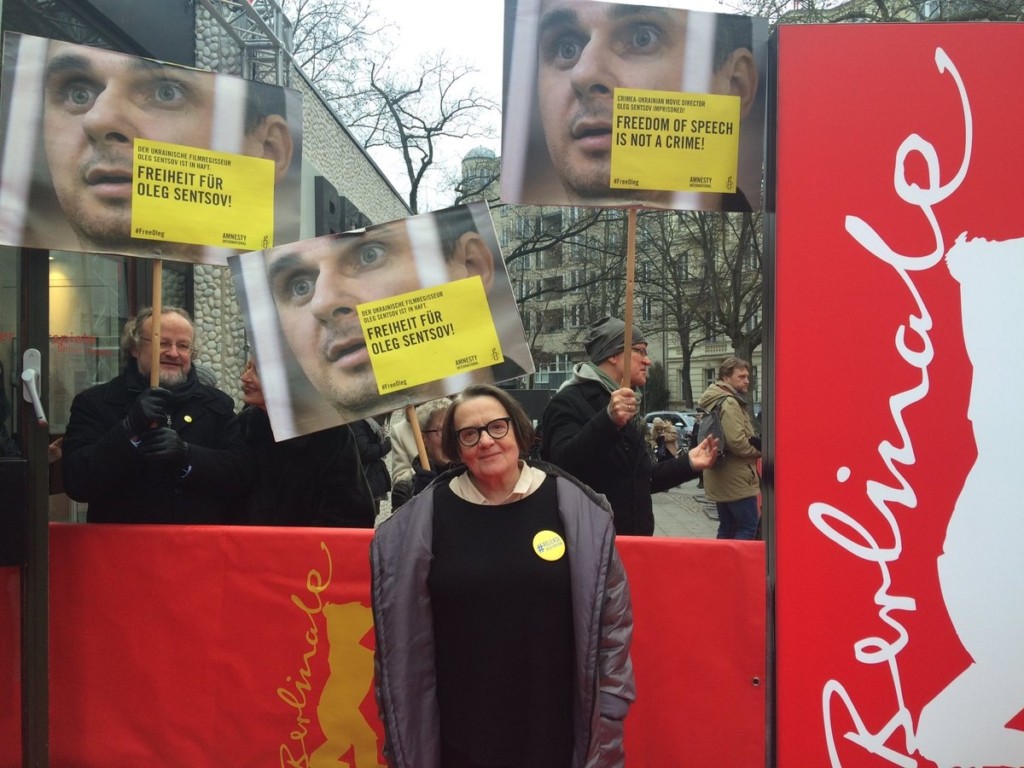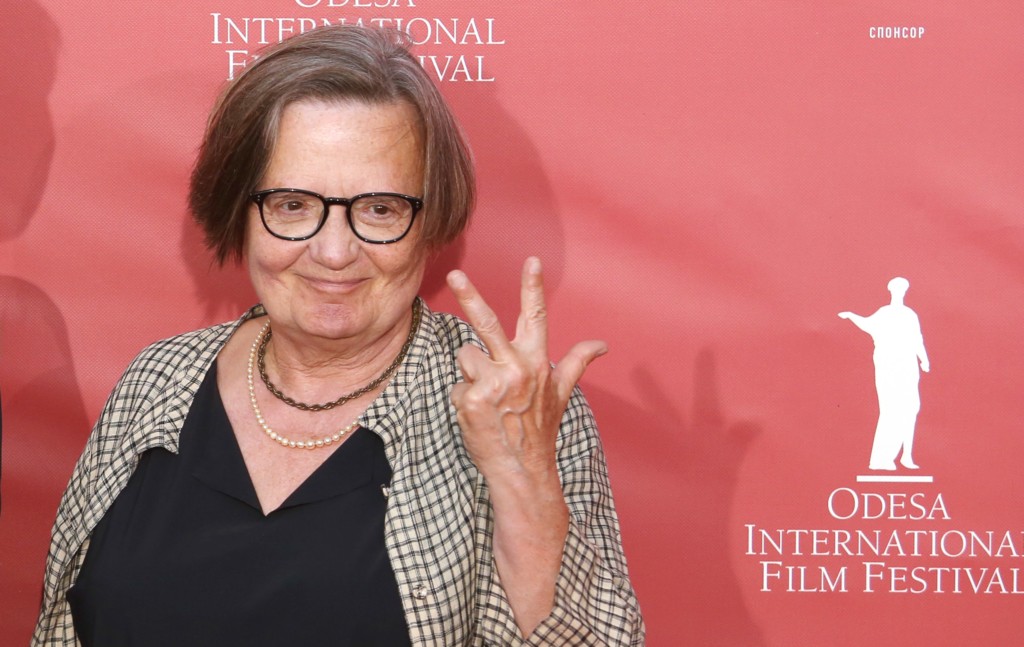When acclaimed Polish filmmaker Agnieszka Holland took the stage of Odesa International Film Festival on July 22 to get her Lifetime Achievement Award, she got a standing ovation.
Holland, 68, had more than enough reasons for a warm greeting: Besides being nominated for Academy Awards three times, she is known in Ukraine as one of the strong defenders of Ukrainian filmmaker and political prisoner Oleg Sentsov, who was sentenced to 20 years in Russian jail on bogus charges.
Holland is one of the most famous modern Polish directors. She was awarded a FIPRESCI prize of the International Federation of Film Critics at the Cannes Film Festival in 1980, and Alfred Bauer Award, a Silver Bear for discovering new ways of making cinema, an original view of reality, at this year’s Berlin Film Festival.
Along with other prominent directors such as Ken Loach, Mike Leigh, and Pedro Almodóvar, Holland co-signed the letter to Russian authorities in 2014, demanding that charges against Sentsov were dropped and his alleged torturing was investigated.

Agnieszka Holland poses in front of the posters calling to release Ukrainian filmmaker Oleg Sentsov. (Twitter\European Film Awards)
This year Holland, who chairs the European Film Academy, helped the documentary about Sentsov called “Process” to get a screening at Berlinale, where it got “large media attention,” according to Holland.
In her speech on the stage of Odesa International Film Festival, Holland also mentioned Sentsov.
“I am a Polish filmmaker and I know that Polish cinema was kind of a model for Ukrainian colleagues. Now in Poland we live through quite dark moments, when our young democracy is practically being destroyed by actual Polish ruling party. And it will be a challenge for all of us to show courage to fight for it again. I think that Ukraine can become a model for us somehow,” Holland said. “I am talking about Oleg Sentsov, whose courage, and strength, and human beauty is a lesson to all of us.”
Oscars nominations and “House of Cards”
Holland came to Odesa International Film Festival to present her new movie “Spoor,” which she describes as the “ecological anarchistic feminist thriller with elements of black comedy.”
However, it’s not her first time in Ukraine: In 2012, she presented in the western city of Lviv her film “In Darkness” about Leopold Socha, a sewer who used his knowledge of the city’s sewer system to shelter a group of Jews that escaped from ghetto. The same year the film was nominated for the Oscars in the Best Foreign Language Film category.
Her another film, “Angry Harvest,” was also nominated for the Best Foreign Language Film award in 1985, while her movie “Europa, Europa” was nominated for the Best Adapted Screenplay in 1992.

Poland director Agnieszka Holland reacts as she walks on red carpet on the closing ceremony of Odesa Film Festival in Odesa on July 22, 2017. (Kostyantyn Chernichkin)
However, Holland said that she would prefer to win one Oscar instead of being nominated for it three times.
“Then I would get something physical – a statue. Although you cannot sell it,” she joked.
Holland is also famous for her film “Total Eclipse” (1995) about complicated relationships between French poets Paul Verlaine and Arthur Rimbaud, starring David Thewlis and Leonardo DiCaprio.
Apart from films, Holland also worked on various TV shows: She was the director at the episodes of popular HBO series “The Wire,” Showtime’s “The Affair,” and Netflix’s “The Killing” and “House of Cards” starring Kevin Spacey.
However, Holland said that she considers directing series just an exercise, because unlike in feature movies, the directors are usually very limited by show’s creators, who define all the most important elements.
Holland joked that those limitations are the “revenge” from scriptwriters for director’s acclaims and freedom to change script while filming feature movies.
Citizen vs. director
Despite her active political position, Holland said that she doesn’t reflect her political opinion in her movies.
“I strongly believe that a movie is not propaganda. Movies are meant to tell something about the world – it cannot be reduced to one ideology or one political opinion,” she said. “The world is interesting because of its complexity, and the artistic means are very rare means which can grab this complexity.”
However, in her films the director still raises crucial political and social issues such as propaganda and terror of authoritarian regime, feminism, and eco-activism.
Holland’s latest “Spoor” tells about an elderly Polish woman who tries to stop hunting and animal torturing in her town, but the authorities don’t take her seriously.
“For me, it was important to show that she as a woman feels voiceless,” Holland said, adding that authorities and town’s elite are men.
Holland will shoot her next film, “Gareth Jones,” in Ukraine. The film will tell the story of a Welsh journalist Gareth Jones who first exposed Soviet famine Holodomor in 1932–1933 to the West.
Holland said that she didn’t want to shoot historical films anymore because they take a lot of time, but she changed her mind after reading the script of “Gareth Jones.” She said that the film is about cynical lies of Soviet authorities, and that now the history repeats itself.
Holland thinks that films and series are powerful tools for changing public opinion and society itself. She said that sometimes nations and societies have changed their vision of the history because of movies, like what happened to Americans after watching “Schindler’s List” about Holocaust.
“I believe that Barack Obama couldn’t be president if there weren’t black or colored presidents of U.S. in TV series,” Holland said. “The filmmakers can only change the vision of one person, but sometimes it could lead to changes in the world.”
